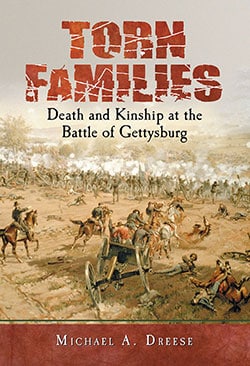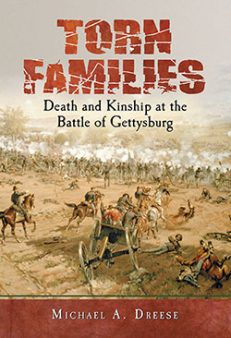Torn Families
Death and Kinship at the Battle of Gettysburg
$29.95
In stock
About the Book
The Battle of Gettysburg lasted only three days but involved more than 160,000 Union and Confederate soldiers. Seven thousand died outright on the battlefield; hundreds more later succumbed to their wounds. For each of these soldiers, family members somewhere waited anxiously. Some went to Gettysburg themselves in search of their wounded loved ones. Some were already present as soldiers themselves.
In this book are extraordinary—and sometimes heartbreaking—stories of the strength of family ties during the Battle of Gettysburg. Excerpts from diaries, letters and other correspondence provide a firsthand account of the human drama of Gettsyburg on the battlefield and the home front.
About the Author(s)
Bibliographic Details
Michael A. Dreese
Format: softcover (7 x 10)
Pages: 232
Bibliographic Info: 52 photos, notes, bibliography, index
Copyright Date: 2012 [2007]
pISBN: 978-0-7864-6913-0
eISBN: 978-1-4766-0288-2
Imprint: McFarland
Table of Contents
Acknowledgments viii
Preface 1
Introduction 3
1. Fathers and Sons 7
2. Mothers and Sons 46
3. Husbands, Wives, and Sweethearts 67
4. Union Brothers 99
5. Confederate Brothers 147
6. Twins 173
7. Sibling Reunions 181
8. Homecomings 196
Notes 205
Bibliography 213
Index 219
Book Reviews & Awards
“engagingly and soundly written”—Civil War News; “will prove rewarding reading for anyone interested in the human tragedy of war”—Strategypage.com; “a curious and interesting work…will prove rewarding reading for anyone interested in the human tragedy of war”—The NYMAS Review; “painstakingly well researched”—Juniata Sentinel.





